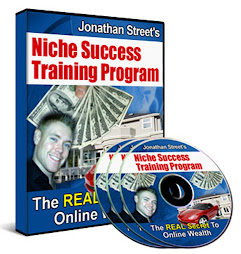E-books are rapidly increasing in popularity. That popularity
has lead to a surge in the number of e-books that are now
available for sale. If you want to make a profit with your
e-book, you need to set your e-book apart from all of the rest.
A good e-book can sell, but you may need to add a little bit
more. Whether you are preparing to sell a new e-book or if you
have had trouble selling one that you already wrote, you may
want to think about bonuses. Bonuses are a great way to
increase your sales. It is no secret that consumers like free
things; free things that are often referred to as bonuses.
As it was mentioned above, bonuses are often used to describe
things that are being offered for free or at a discounted price.
If properly executed, you may be able to attract a large number
of e-book buyers, just for offering additional bonsuses. To
make the most out of offering a bonus, you are urged to choose
that bonus wisely. Bonuses that may be worth your time include
free product samples, coupons, discount codes, printable charts
or other resource guides, or additional e-book features, like
more content or extra chapters.
In addition to having a wide variety of bonuses to choose from,
when offering them with an e-book purchase, you can also decide
where those bonuses will come from. There are many e-book
authors who like to offer their own bonuses. These types of
bonuses often include additional e-book content or printable
resources, such as charts. For instance, if you are writing an
e-book that outlines getting out of debt, you may want to
include a number of extra, but free printable resources. These
guides could include monthly budget charts, a debt total tally
sheet, or a chart that can be used to track spending habits.
What is nice about offering these types of bonuses is that they
are relatively easy to offer and they are bonuses that many will
use.
If you are interested in offering a different type of bonus,
like free product samples or coupons, you may need outside
assistance. For this example, let’s say that you were trying to
sell an e-book that outlines caring for your exotic pet. You
may be able to partner with an exotic pet store, online or
offline. In most cases, you will find that most businesses
would be more than willing to provide you with coupons or
discount codes to give to your buyers. Coupons for items such
as exotic pet food and other supplies may be needed and put to
good use by your e-book buyers. It is also important to note
that the company which you partner with may also be able to
benefit; they too will likely see an increase in sales, as many
consumers shop where they can save money. Those first-time
sales may even create long-term customers; therefore, everything
works out for everyone involved.
When it comes to adding bonuses to e-books to increase value or
increase the chances of a sale, there are many e-book authors
who wonder exactly how far they should take it. In all honesty,
it is your decision to make. If you are able to create your own
low-cost bonuses, like printable resource guides, you may want
to think about giving these bonuses away to all buyers. If you
are partnering with another business, to offer free product
samples or coupons, it might be best to set a time frame or
limit the number of buyers who qualify for the bonuses.
Advertising that bonuses are available for the first one hundred
buyers will likely cause a temporary spike in sales, but it may
be just enough to generate interest or create a “buzz.”
Adding a bonus or bonuses to your e-book is something that is
completely optional; you don’t have to do it if you don’t want
to. However, e-book bonuses have a fairly high success rate,
especially when marketed the proper way. If you decide to offer
e-book bonuses, consider advertising them, along side your
e-book on your e-book sales page, in online classified ads, and
in any press releases that you may decide to create.
. From a consumer standpoint, do you like getting free
things? There is a good chance that you do and so do millions
of other consumers.
Len Hutton.
Wednesday, January 16, 2008
Subscribe to:
Post Comments (Atom)






No comments:
Post a Comment